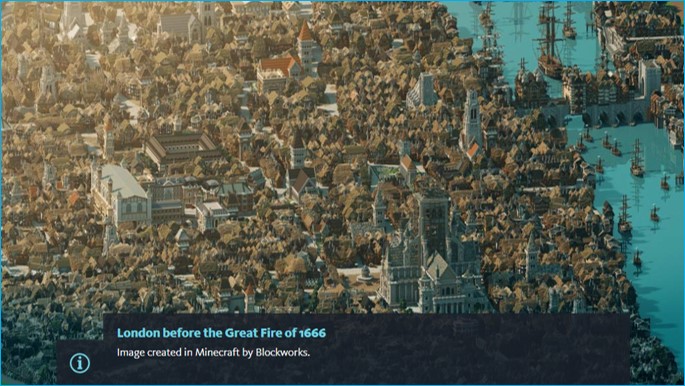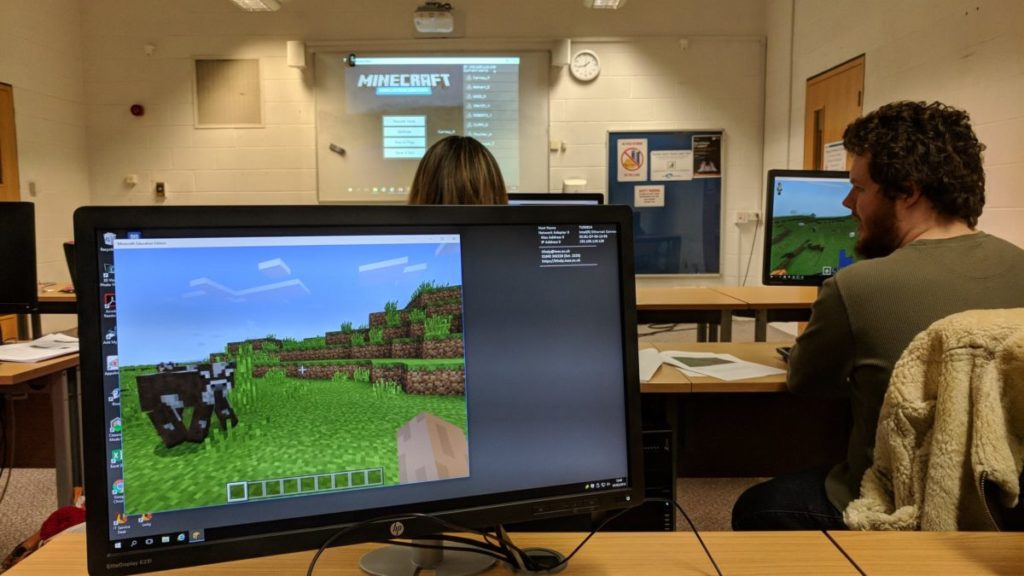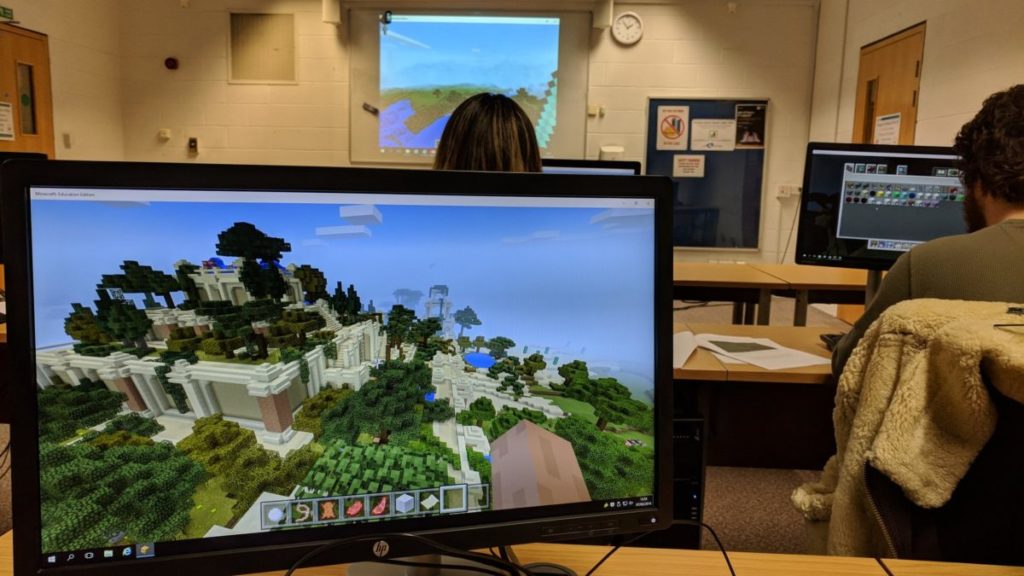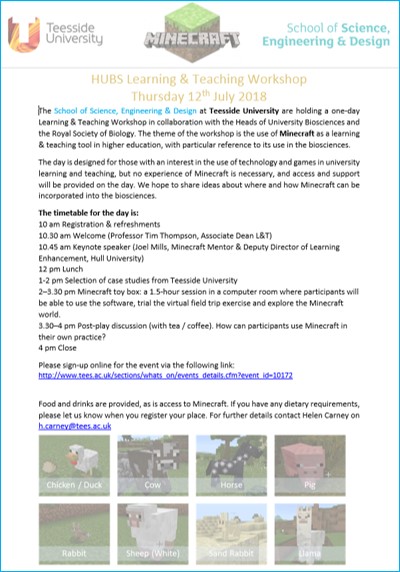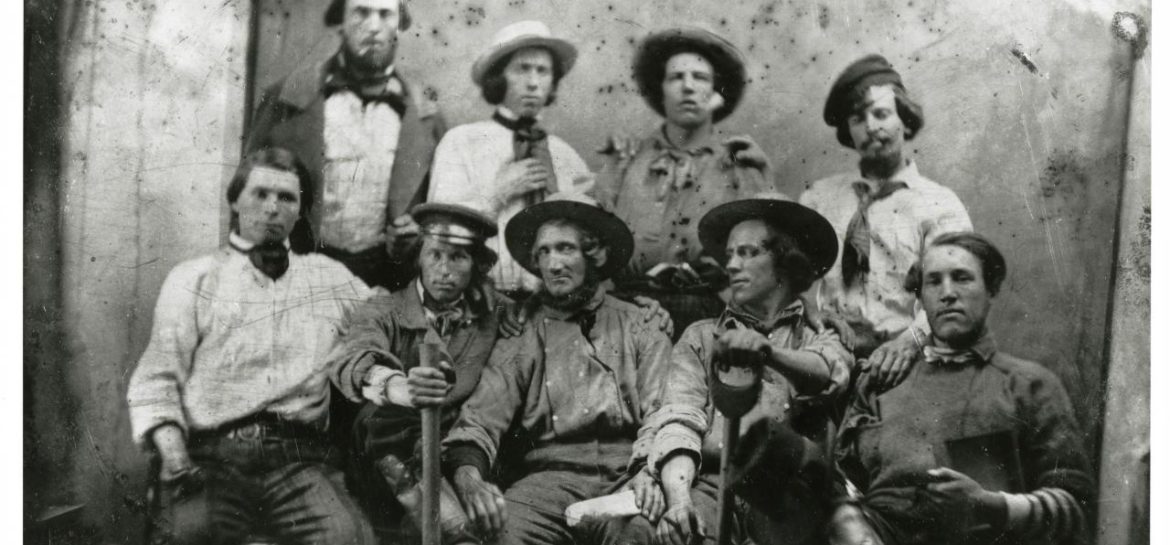
Everyone here knows that I like to play video games. I always have, and my transition from ugly duckling to beautiful swan can be mapped alongside my gaming platforms: Spectrum 48k and Spectrum 128k at school, Amiga and Atari Lynx II (if anyone remembers that…) at college, PlayStation 1 and PS2 at university, PlayStation 3 in my first academic posts and now the X Box One with my own boys. I’ve never been massively into playing on the PC – despite the fact that my one greatest weakness is Football Manager. Anyway needless to say, having playing on so many platforms and with so many different types of games, I can see their potential to support learning and teaching.
I wrote in my last post about the use of simulation and gaming in this aspect, but I’m going to go a step further now to give a tangible example: Minecraft. For those of you who have never played the game, it is a staggeringly successful digital juggernaut which Microsoft went and bought in 2014 for $2.5 billion. The game itself is very simple (a key to it’s success) – it combines exploration and adventure with a sort of digital Lego.
The flexibility of the game combined with the ease of linking several computers together so that groups of people can play together online has meant that Minecraft has already attached the attention of educators. Several years ago Andrew Millar wrote in edutopia that:
“Because Minecraft has such open possibilities and potential, teachers have been experimenting with different ways to use it in the classroom for a while now. Some teachers use it to teach math concepts like ratios and proportions, while others use it to support student creativity and collaboration.”
He then provided some examples of how it could be used for schools, such as in history, story telling, developing digital citizenship, maths and problem-solving. In addition, there is even evidence to show that video games like this can help students develop key soft skills, including empathy. As Matthew Farber discusses:
“Playing video games socially with others can boost a child’s soft skills—those 21st-century competencies that students should possess to be able to compete and innovate in today’s interconnected, global economy. Soft skills include the so-called 4 Cs: creativity, collaboration, critical thinking, and communication. For example, playing the popular block-building game Minecraft together with friends can put soft skills into practice, as children solve meaningful problems collaboratively.”
These are all points that I’ve made here before, in a round-about way. In fact, those of us in L&T talking about this approach are not alone – the potential of Minecraft for education has been realised outside of the classroom. You can look to the Museum of London have embraced the game with a wonderful download on the Great Fire of London in 1666 as a great example of this:
So what about Higher Education? For us here at Teesside, we like to combine real-world experiences with theoretical content. But as I’ve said before, this is not always possible due to the scale or context of the fieldwork you want your students to be involved in. Another consideration is that there are times when you want your students to practice a method or technique before they go out and do it for real. In our chemistry modules, we encourage our students to use the Learning Science resources, which allow them to run lab experiments online. This is the first year we’ve used these and I’m eager to discuss them with staff and students to see how useful they were. In other subjects, such as Ecological Science, we may want our students to practice field-work methods before we take them out and about. Methods such as ecological sampling. Hence Minecraft…
Minecraft features working (albeit basic) ecosystems, and so we have been experimenting with using Minecraft to simulate this context:
Dr Helen Carney and I have been talking about this for a while, and eventually we decided to just go for it. A world was created online and we roped in staff and students to work together to explore and record the ecological information present. .Initial results of this approach are promising and, feeling emboldened, we tapped into the Heads of University Biosciences special interest group of the Royal Society of Biology for some funds to run a day workshop on this subject.
And so here we are! The day is arranged and you are all very welcome to follow the link here to come join us. Places are limited so get your skates on.
